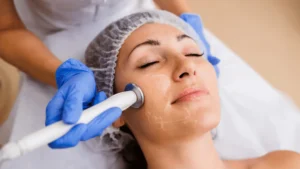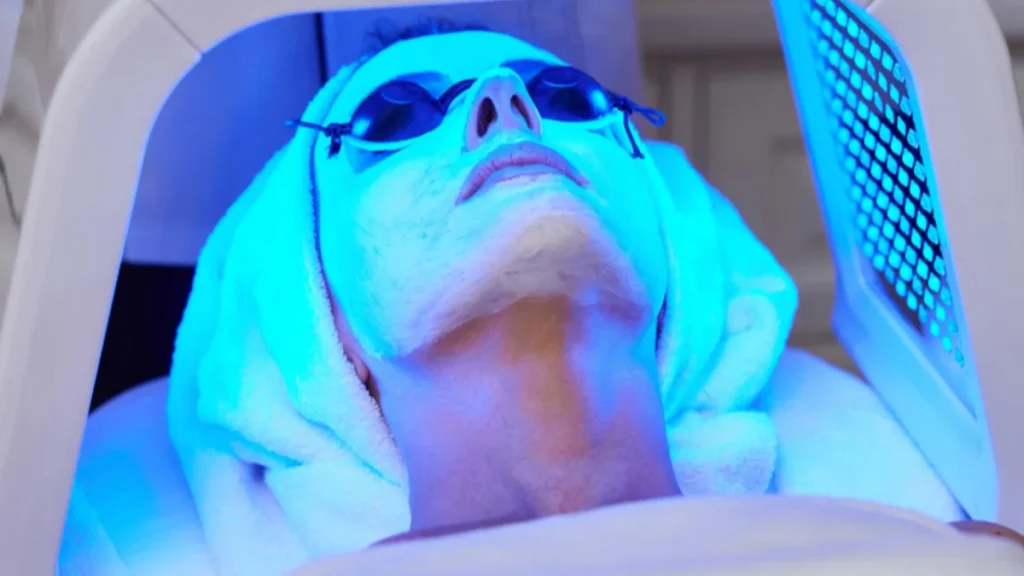The global beauty industry is undergoing a groundbreaking transformation, driven by the convergence of artificial intelligence (AI), biotechnology, and digital innovation. From deeply personalized skincare powered by genetic insights to augmented reality (AR) makeup try-ons, beauty is no longer just about surface-level aesthetics—it’s about science, data, and hyper-individualized solutions. This new era is reshaping how consumers approach self-care, with technology offering tools that are more precise, accessible, and aligned with each individual’s biological makeup.
Epigenetics: The Future of Tailored Beauty
One of the most revolutionary developments in beauty science is the application of epigenetics—the study of how environmental factors can influence gene expression without altering DNA itself. Beauty brands and biotech firms are increasingly leveraging epigenetic research to create skincare products that respond to a person’s unique biological signals, such as stress, pollution exposure, diet, and sleep habits.
Instead of a one-size-fits-all moisturizer, companies now formulate creams and serums based on a customer’s epigenetic profile. These advanced formulations aim to activate or suppress specific genes related to aging, inflammation, and skin hydration, offering a level of customization previously unimaginable. With the help of skin sampling kits or smart diagnostic devices, consumers can receive regimens tailored to how their skin is aging and responding to the environment—down to a molecular level.

AI-Powered Skincare Diagnostics and Personalization
Artificial intelligence is becoming a vital tool in skincare, offering advanced diagnostic capabilities and real-time personalized recommendations. Using facial recognition technology and deep learning algorithms, AI systems can analyze thousands of images of a user’s face to detect signs of aging, pigmentation, acne, dehydration, and more.
Apps and smart mirrors now provide AI-driven consultations, offering product suggestions that match a user’s exact skin condition and even tracking changes over time. Some devices go further by syncing with wearable health tech or mobile health apps to integrate data such as hormone levels, hydration, or menstrual cycles into skincare planning.
Brands are also using AI to optimize product development, analyzing customer feedback, ingredient performance, and market trends to rapidly iterate and refine formulations that align with consumer needs.
Biotech in Beauty: From Lab-Grown Actives to Skin Regeneration
Biotechnology is ushering in a new generation of high-performance beauty products that utilize lab-grown ingredients and cellular research. Scientists are now able to cultivate rare botanicals and high-potency actives in labs through sustainable bio-fermentation, eliminating the need for over-harvesting natural resources. Ingredients like collagen, elastin, peptides, and hyaluronic acid can be synthesized more ethically and precisely than ever before.
In addition, stem cell technology and regenerative medicine principles are being applied to skincare and haircare. Brands are exploring how to stimulate skin regeneration, restore the skin barrier, and encourage collagen production using growth factors derived from plant stem cells or bioengineered materials. These innovations aim to deliver visible anti-aging results while maintaining a strong commitment to sustainability and skin safety.
Augmented Reality Transforms the Shopping Experience
Augmented reality (AR) is reshaping how people shop for cosmetics. Virtual try-on tools have become a mainstay of online beauty retail, allowing users to see how a lipstick shade, foundation, or eyeshadow palette will look on their face without ever stepping into a store. With the help of facial mapping and real-time rendering, these tools ensure accurate color matching and placement, providing a more confident and satisfying shopping experience.
Some AR systems even simulate how makeup behaves throughout the day—showing how a foundation might oxidize or how a lipstick wears after eating. These innovations are bridging the gap between online convenience and in-person interaction, especially in the post-pandemic era where digital-first shopping has become the norm.
DNA-Based Beauty: Unlocking Personal Skincare Codes
Another frontier in tech-enabled beauty is DNA-based skincare. Some companies offer services where consumers submit a simple cheek swab, which is then analyzed in a lab to assess genetic predispositions for skin aging, sun sensitivity, pigmentation, and elasticity. Based on these insights, skincare routines and product ingredients are selected to proactively address concerns before they visibly surface.
This highly personalized approach empowers users to treat root causes rather than just symptoms, turning beauty into a proactive science rather than a reactive process. It also opens doors for early skin health interventions that go beyond cosmetics and into wellness.
Smart Devices and Beauty Tech Tools Go Mainstream
Beyond diagnostics, smart devices are bringing professional-grade beauty treatments into people’s homes. LED masks that treat acne and wrinkles, ultrasonic facial massagers that enhance absorption, and app-connected cleansing brushes are becoming increasingly popular. Some devices even use AI to adapt settings in real time based on a user’s skin temperature, hydration levels, or environmental conditions.
These tools not only enhance the efficacy of skincare routines but also make once-exclusive treatments more accessible, bridging the gap between the spa and the bathroom shelf.
Ethical, Sustainable, and Inclusive by Design
As beauty tech evolves, so too does the emphasis on ethical development and inclusivity. AI algorithms are being trained on diverse datasets to ensure they work accurately across all skin tones, genders, and ages. Biotech labs focus on eco-conscious manufacturing, using less water, fewer emissions, and zero animal testing. Personalized beauty also means less product waste, as consumers buy only what works for them.
A Future Defined by Hyper-Personalization
Looking ahead, the future of beauty will be deeply personalized, scientifically advanced, and digitally enhanced. The fusion of AI, biotechnology, and augmented reality is not only making beauty more effective but also more attuned to individual needs and values. With continuous innovations in genetics, smart diagnostics, and sustainable solutions, beauty is becoming an ever-evolving expression of both science and self.







